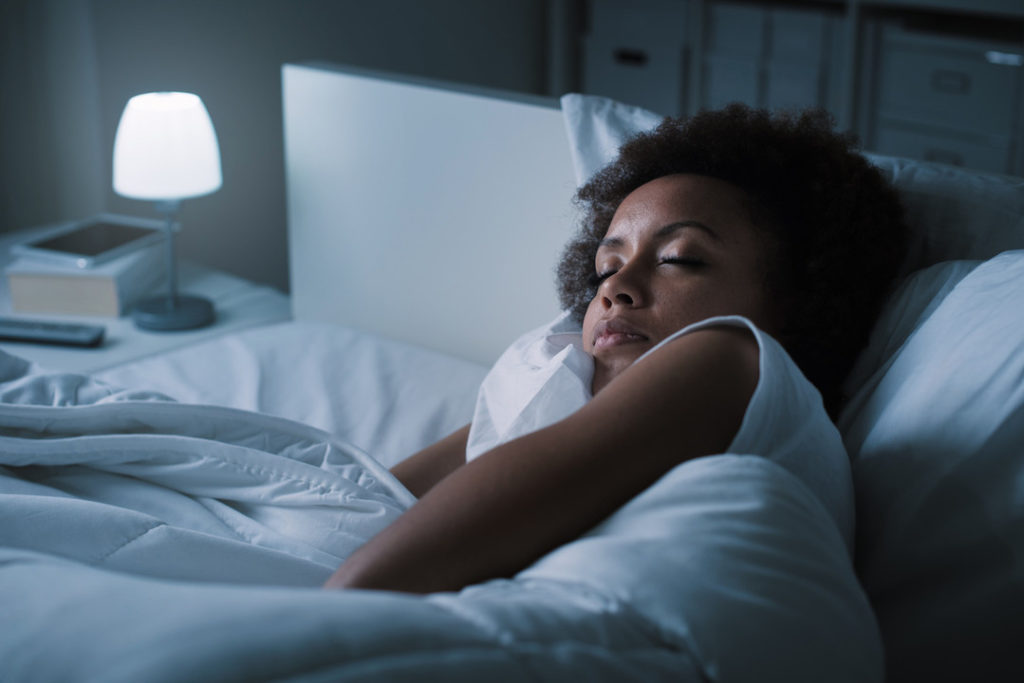Getting enough sleep makes you a better leader – and here’s how to do it

While he’s widely known as a cutting-edge, visionary leader, Amazon CEO Jeff Bezos credits a time-tested habit for bolstering his success – getting enough sleep. As Chief Executive Magazine notes, Bezos insists on eight hours of sleep each night and doesn’t take meetings before 10:00 am to ensure that happens. He’s not alone in praising the powers of consistent shut-eye – Thrive Global CEO Arianna Huffington wrote a book called The Sleep Revolution about it, television personality Ellen DeGeneres swears by eight hours each night and both Microsoft Founder Bill Gates and Apple CEO Tim Cook make sleep a top priority. That’s not surprising considering that recent research has found sleeping well can make you a better leader.
In an article titled Sleep Well, Lead Better in the September-October 2018 issue of the Harvard Business Review, author Christopher M. Barnes found that when managers lose sleep, their employees’ experiences and output are diminished too. Citing several of his research studies, Barnes noted “that when leaders show up for work unrested, they are more likely to lose patience with employees, act in abusive ways, and be seen as less charismatic. There is also a greater likelihood that their subordinates will themselves suffer from sleep deprivation—and even behave unethically.”
When Maria Fajardo, Director of Business Services & Process Optimization for a $2 billion company, discovered the benefits of sleep, it proved to be a game changer in her personal and professional life. Often operating on one or two hours of sleep a night, Maria grappled with 60 extra pounds, emerging health problems and wasn’t a happy person. She decided to embrace mindfulness and yoga, and found a free app called Insight Timer that offered a sleep meditation. Within a few uses, Maria was able to shut her brain off and finally get a good night of rest. Today Maria is 45 pounds lighter, much happier and healthier, and consistently gets six to eight hours of sleep each night.
“My mindfulness practices have made me look inside and ultimately become more available to give to others, explains Fajardo. “Sleeping has certainly contributed to being able to shut down, wake up peaceful, rested and renewed. At work, I’m a better leader and listener, more focused on helping people develop and improve. My direct reports have noticed this change and it motivates me to continue.”
According to the Center for Creative Leadership (CLC), an increasing number of companies are recognizing the benefits of sleep towards employee well-being and productivity. They note Uber, PwC, Google, NASA, and Ben & Jerry’s have integrated healthy sleep practices into their organizations, including components such as sleep education, supporting work/life boundaries and accommodating schedules that provide opportunities for rest. Whether your organization offers support or not, you can start claiming a better night of sleep now. CLC has identified these eight practices for more restorative sleep:
- Set a regular sleep schedule that you follow even on the weekends.
- Create a relaxing environment that is dark, cool and quiet. (Hey, I always travel with earplugs to ensure noise levels of the hotel room guest next door don’t interfere with my rest.)
- Understand your sleep patterns. They recommend a fitness wearable.
- Exercise, just not right before bed.
- Disconnect from digital devices, keeping them away from your bed. Here are some tips for creating healthy boundaries with your technology usage.
- Put work aside.
- Limit your intake of caffeine and alcohol, both of which interfere with sleep quality.
- Honor your circadian rhythm by listening to your body clock.
When it comes to sleep, I’m a late adopter. Spent most of my teenage years and twenties getting by on about four or five hours of sleep without any repercussions. Or at least, that’s what I thought at the time, though research has now proven a link between sleep deprivation and overeating back when I was 50 pounds overweight. That desire for sleep started changing in my thirties and forties, as I began recognizing how my mental acuity and moods improved with more sleep and the lack of it crashed my productivity. Now my ideal is seven hours a night. Sure, I can get by on six hours for a couple of days in a row, but go longer than that with sub-optimal slumber and my brain operates at the speed of molasses. So, I make sleep a top priority these days, even choosing it over early morning exercise when the need arises.
How much sleep do you average a night? How does sleep impact your effectiveness at work?
